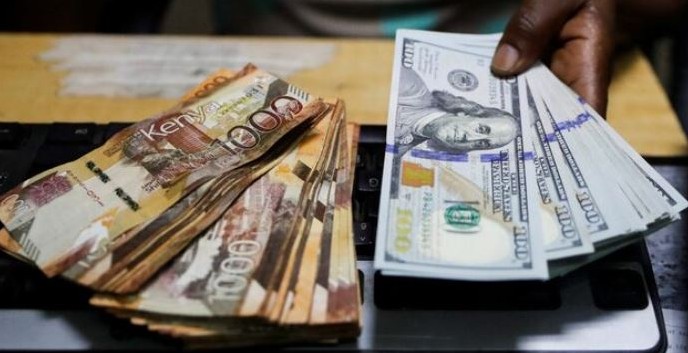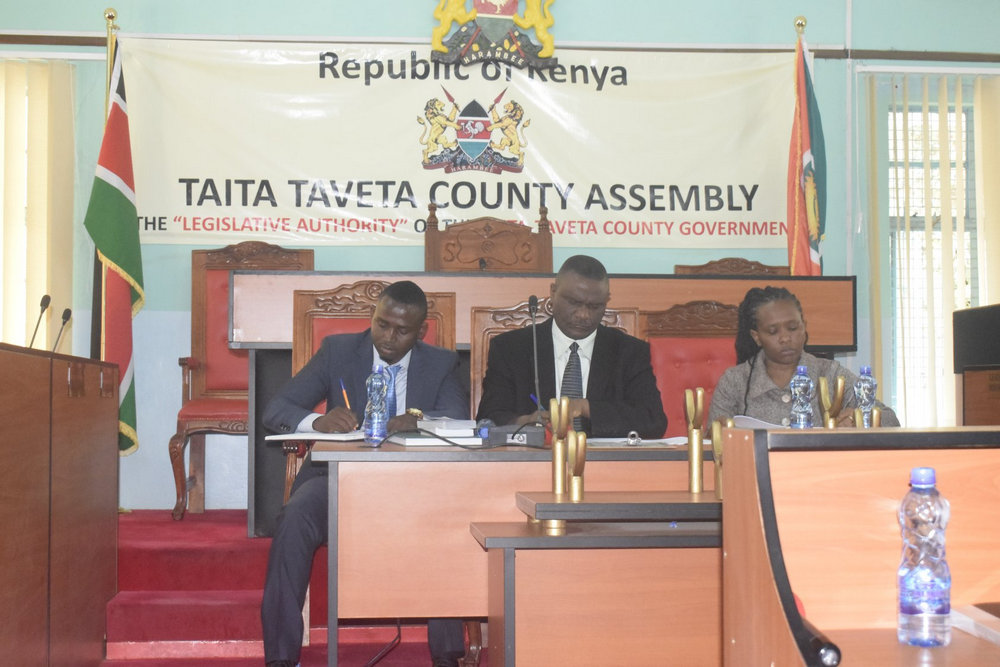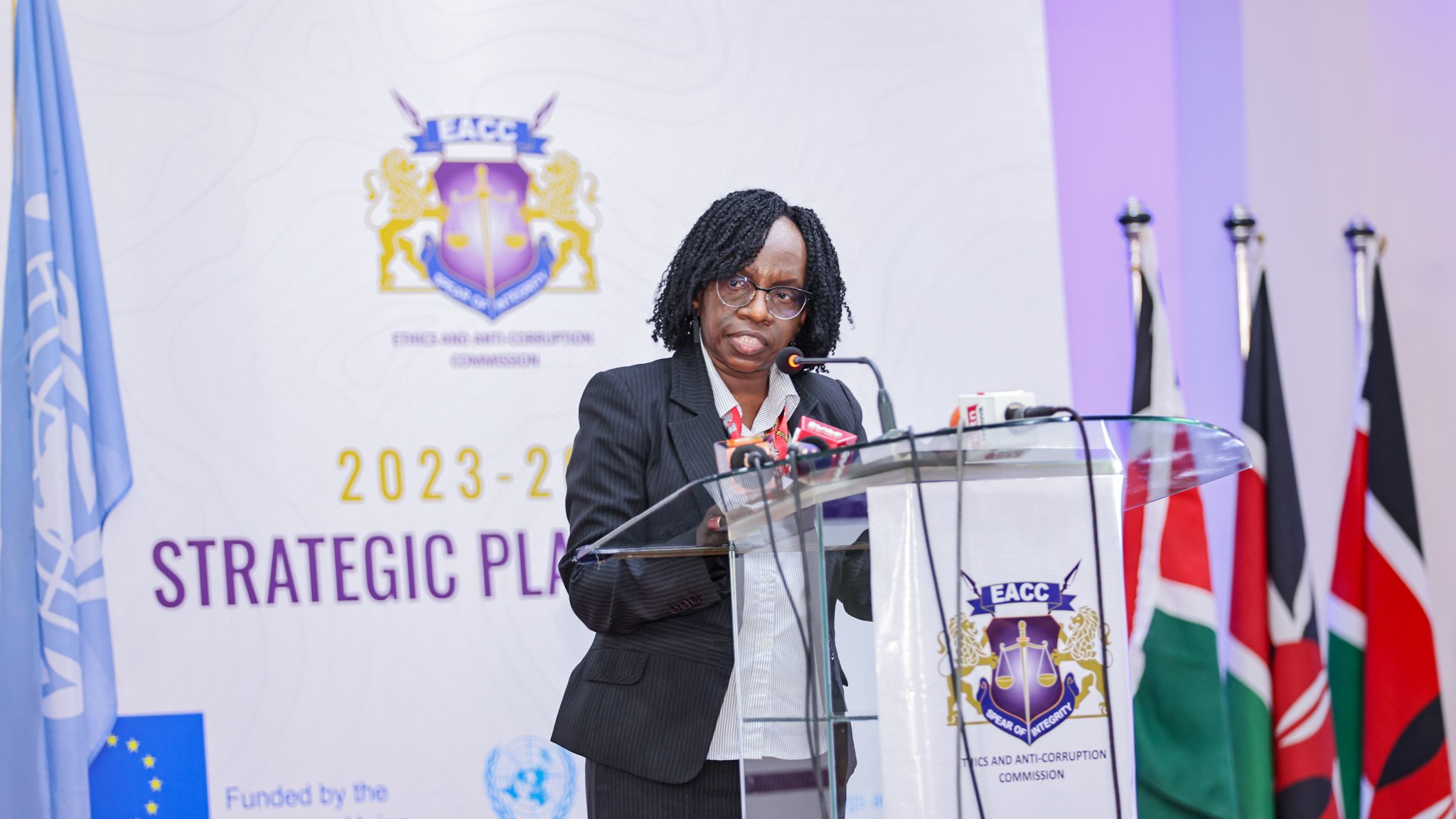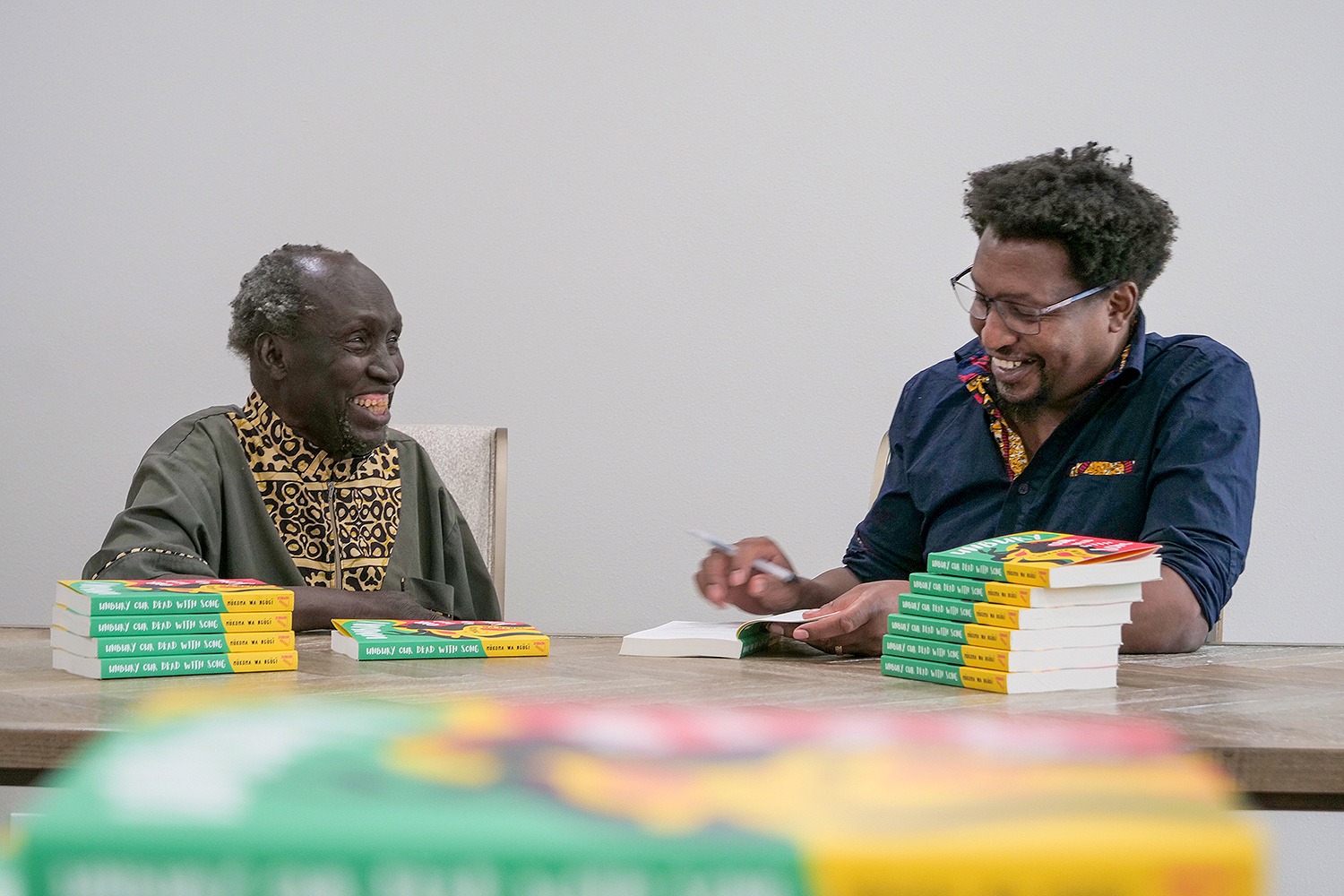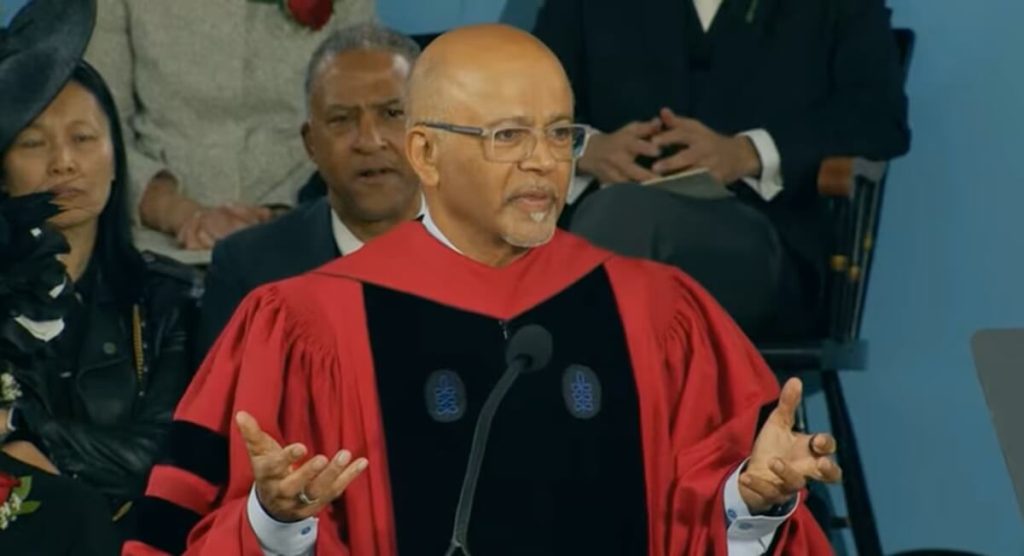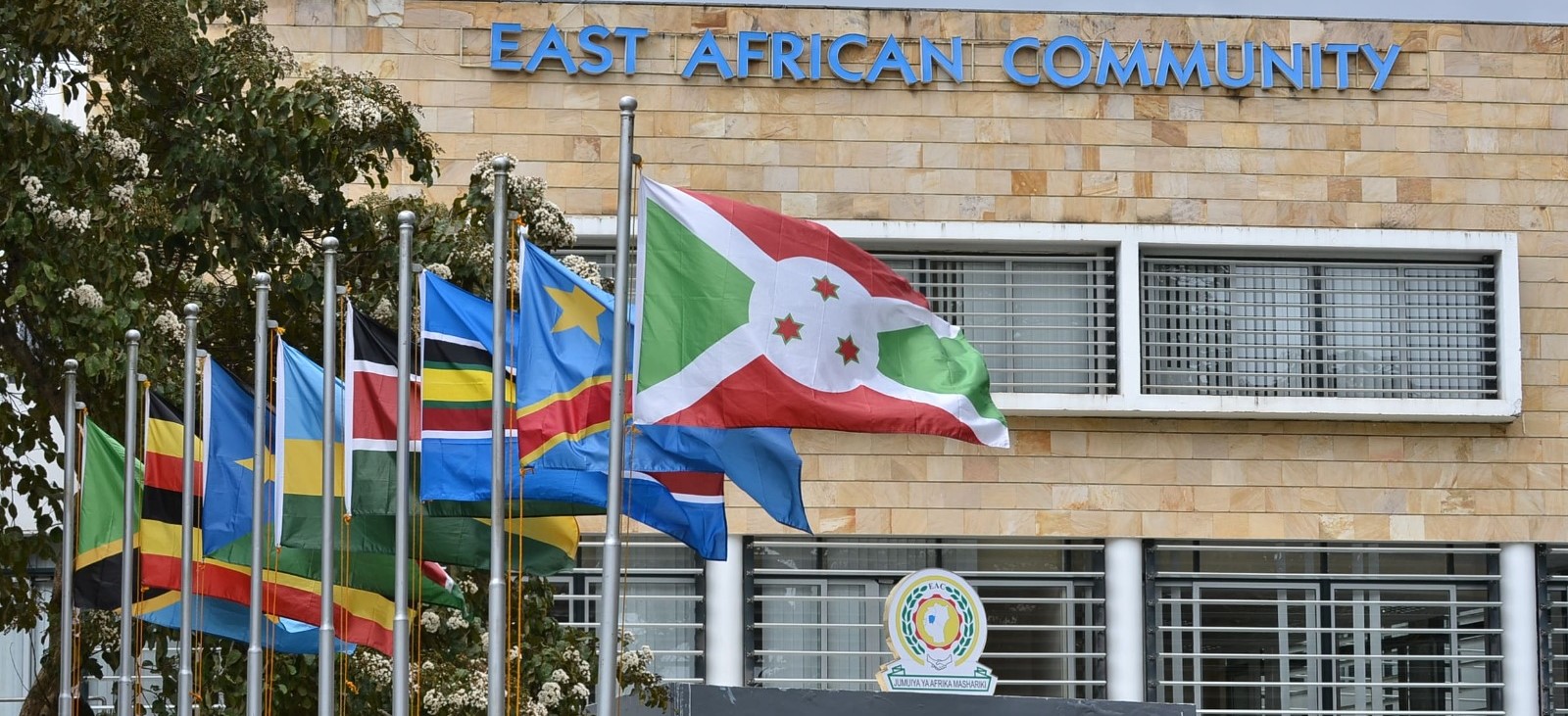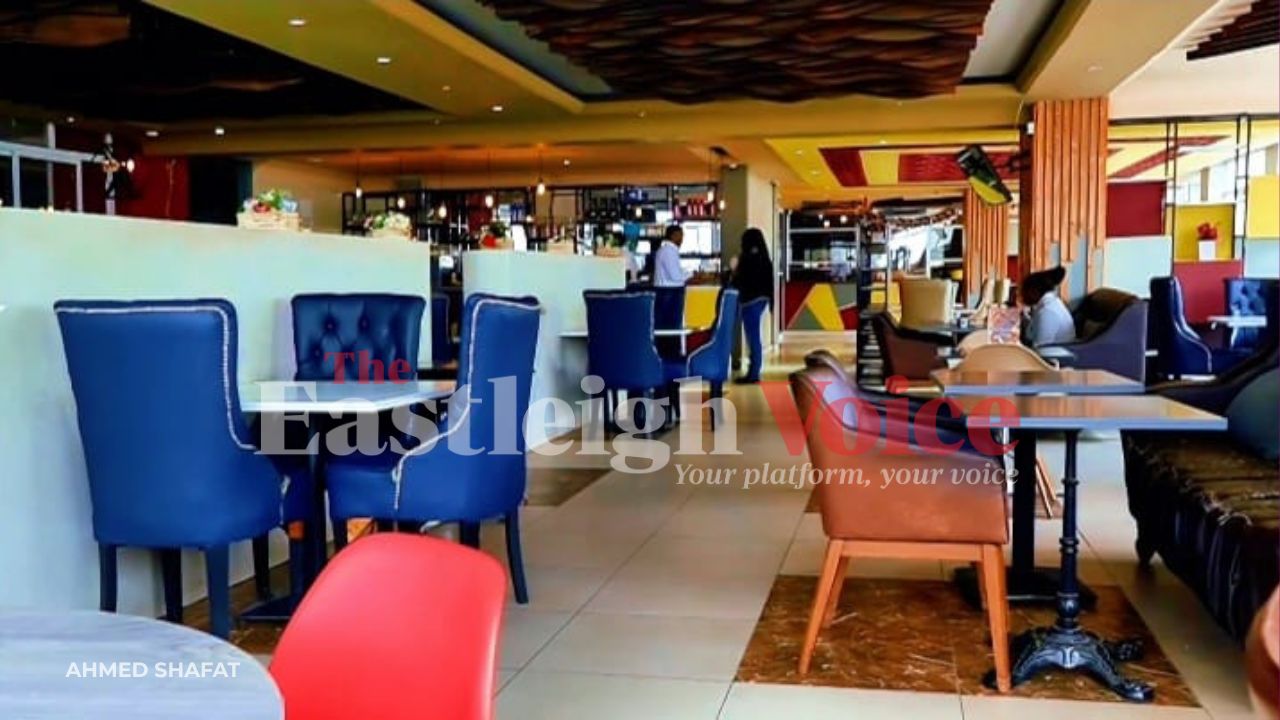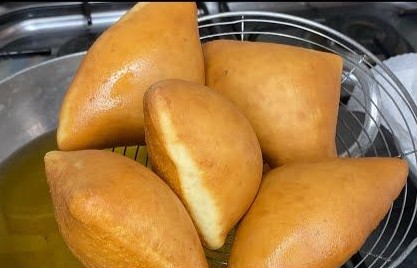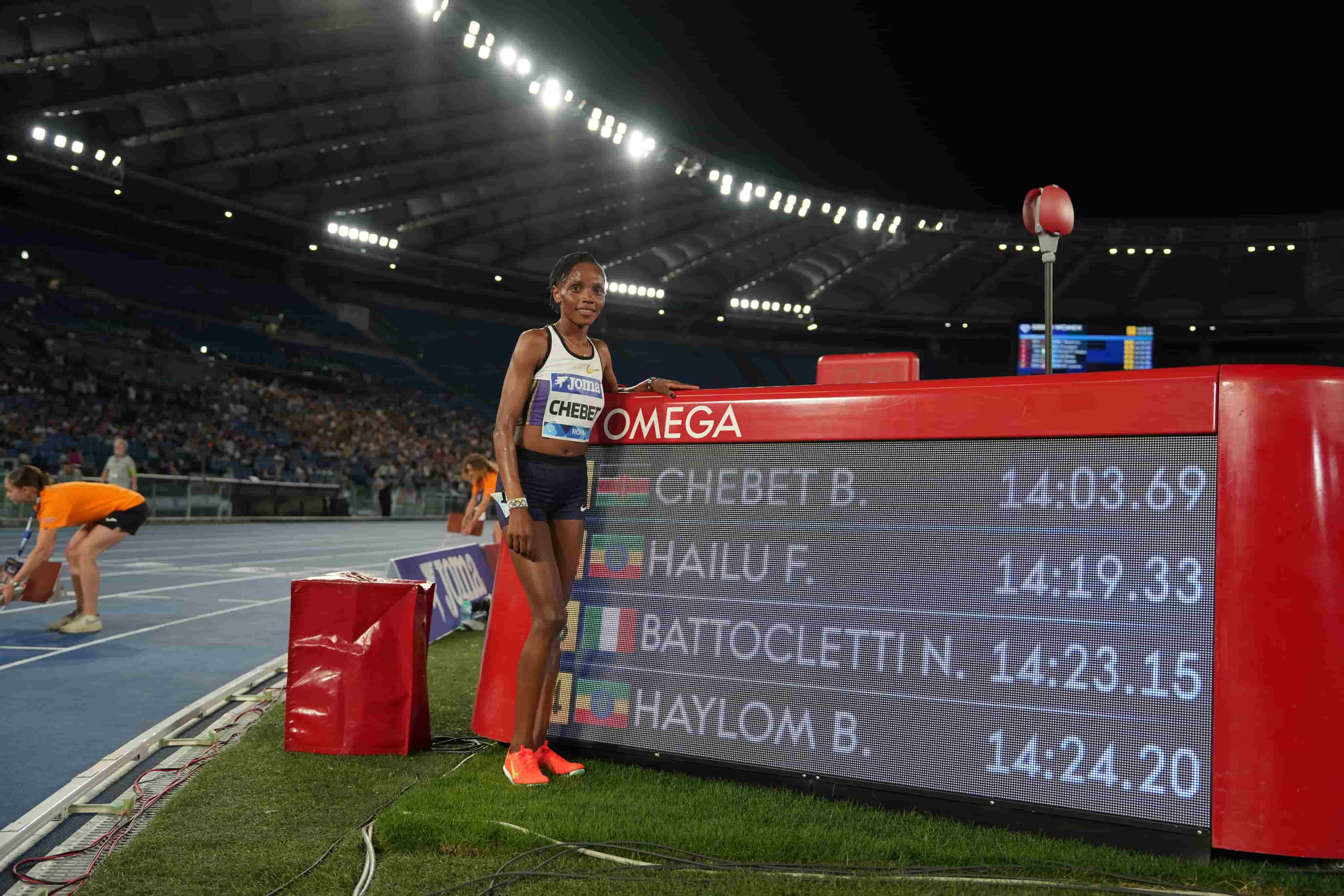Eastleigh residents find unity, joy in Eid-ul-Adha celebrations amidst harsh economic times
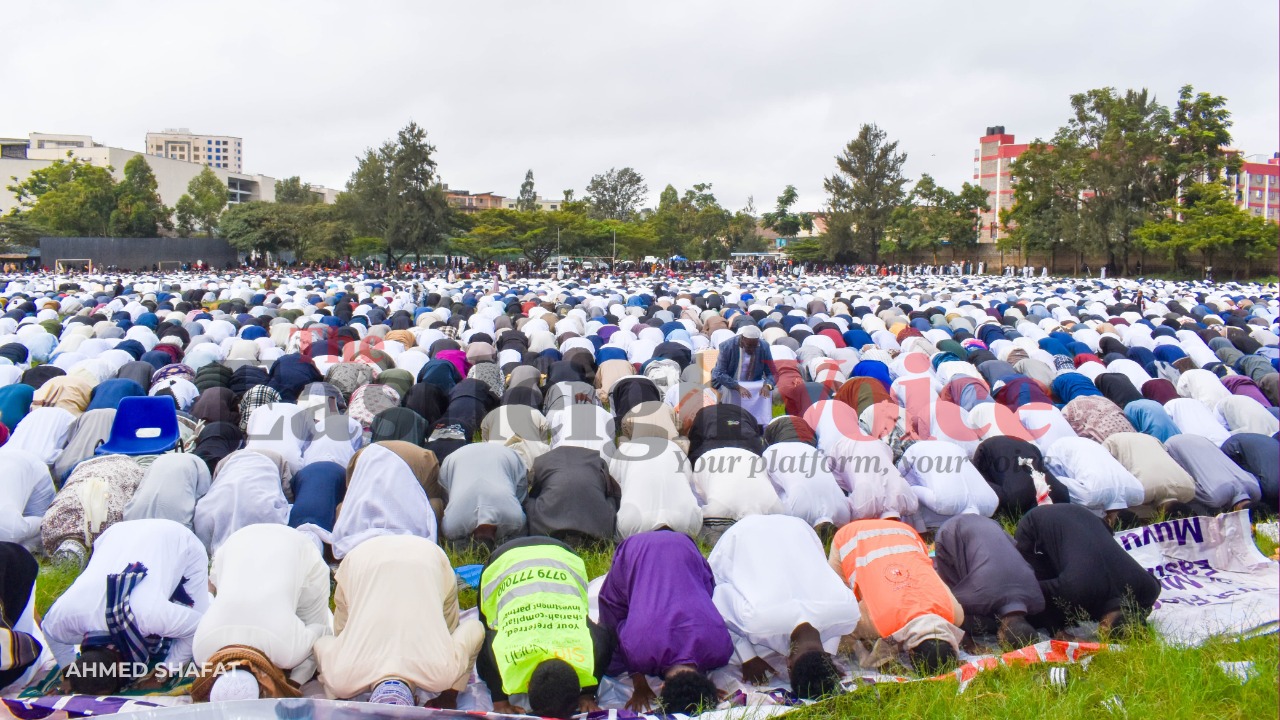
For Hassan, who has been selling goats for over a decade, Eid-ul-Adha isn’t just a religious celebration — it’s the most important time of the year for his business.
As the streets of Eastleigh fill with shoppers' buzz and fresh meat's aroma, goat vendor Hassan Ali can’t hide his excitement.
For Hassan, who has been selling goats for over a decade, Eid-ul-Adha isn’t just a religious celebration — it’s the most important time of the year for his business.
More To Read
- In Pictures: Muslims countrywide celebrate Eid-ul-Adha
- Muslims across Kenya mark Eid-ul-Adha with prayers and sacrifice
- Muslims in Eastleigh, rest of Kenya observe the Day of Arafah through fasting
- Eastleigh comes alive with festive spirit as residents gear up for Eid-Ul-Adha amid tough economy
- Kenyan Muslim organisations launch Sh5.4 million Udhiyah programme for Gaza amid deepening humanitarian crisis
- Interior CS Murkomen declares Friday public holiday to mark Eid-ul-Adha
Originally from Kiamaiko, Nairobi’s well-known livestock hub, Hassan made his way to Eastleigh two days ago with a herd of 52 goats, most large and well-fed. The response has been overwhelming.
“This is the best start I’ve had in years,” he says. “We brought in big goats from Wajir, and most of them sold within the first day at Sh20,000 each. The smaller ones are going for around Sh12,000, and we only have 16 left. We are confident we’ll sell out by tomorrow and might even restock before Eid ends.”
According to Hassan, during regular seasons, goat prices typically range between Sh5,000 to Sh8,000 depending on the size. But during Eid, demand spikes as families — even those facing economic hardship — strive to uphold the tradition of sacrificing a goat.
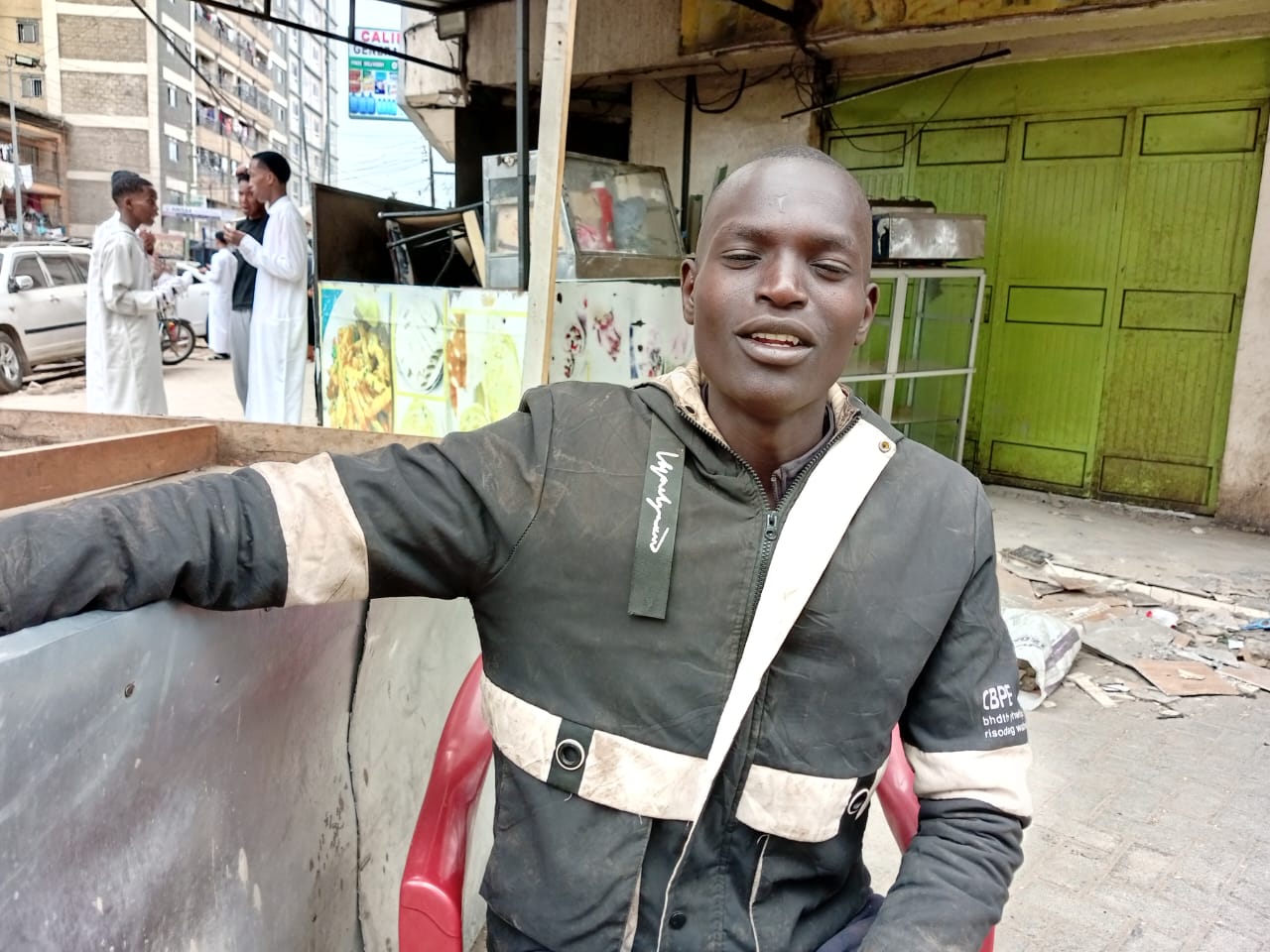 Hassan Ali, a goat vendor, shares his excitement over the booming goat business in Eastleigh. (Photo: Charity Kilei)
Hassan Ali, a goat vendor, shares his excitement over the booming goat business in Eastleigh. (Photo: Charity Kilei)
For vendors like Hassan, this season is not only a time of profit but of responsibility.
“We don’t just sell goats,” he says. “We also help with slaughtering for those who can’t do it themselves. It’s part of the service. Some customers even come together to buy one goat and share the cost.”
He’s already planning to return to Wajir to bring in another batch of goats before the final days of Eid.
“There’s demand, even if people are struggling,” he adds. “It’s a time of faith. People find a way.”
Eid-ul-Adha, or “The Big Eid,” is one of the most sacred holidays in Islam. It commemorates the willingness of Prophet Ibrahim (Abraham) to sacrifice his son in obedience to God. In honour of this devotion, Muslims around the world slaughter livestock — usually a goat, sheep, or cow — and distribute the meat among family, friends, and the less fortunate.
In Eastleigh, Majengo, the larger Kamukunji, and surrounding neighbourhoods, the tradition continues to thrive. Makeshift markets and slaughter points have popped up in backstreets and open spaces, drawing hundreds of buyers eager to find a suitable animal.
Despite high prices and ongoing economic hardships, many families are making personal sacrifices to uphold the sacred ritual.
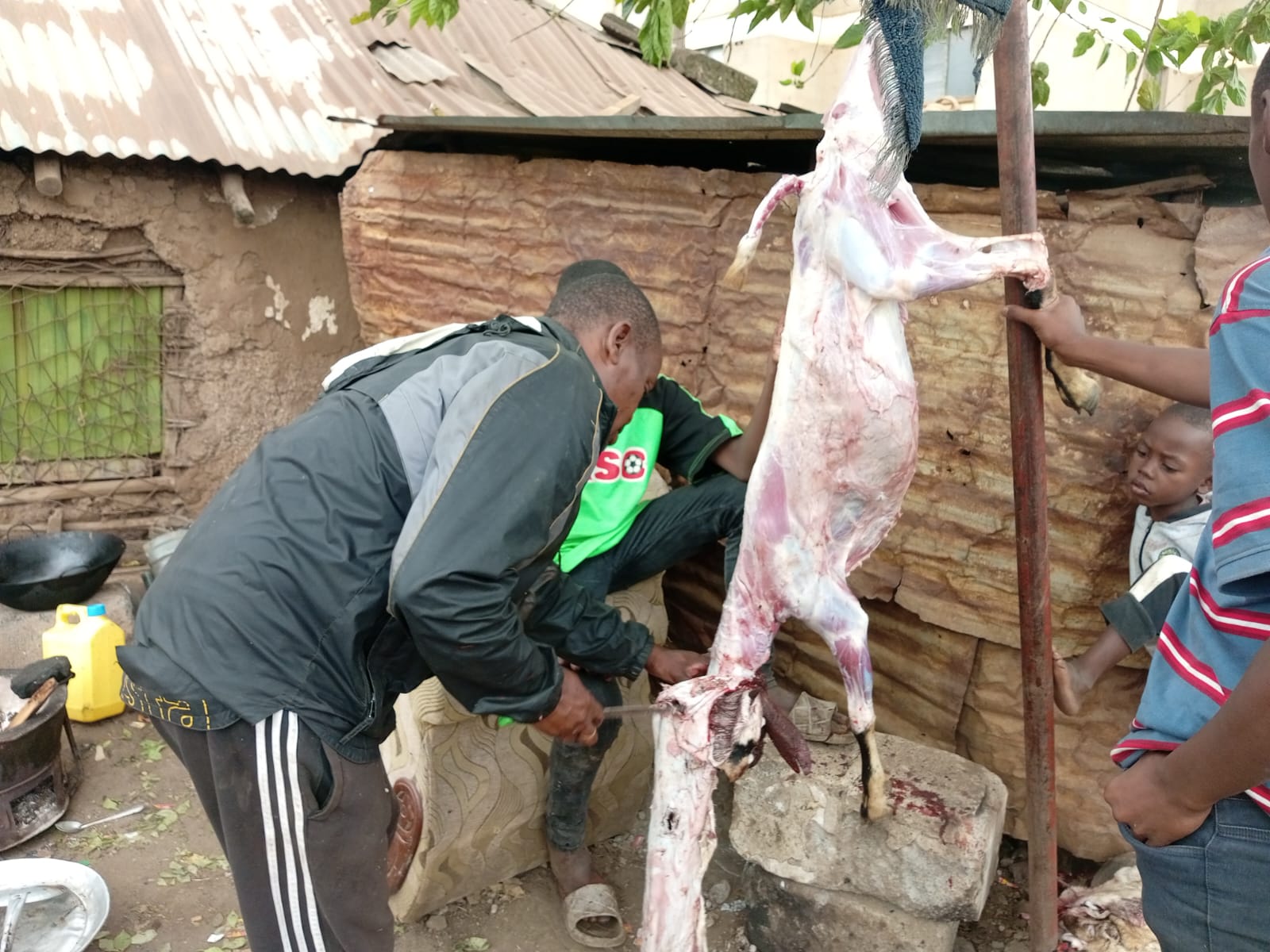 A goat being slaughtered in Eastleigh as part of the Eid-ul-Adha celebrations on June 6, 2025. (Photo: Charity Kilei)
A goat being slaughtered in Eastleigh as part of the Eid-ul-Adha celebrations on June 6, 2025. (Photo: Charity Kilei)
Zainab Ali, a resident of Majengo, stands proudly beside her two sons as they help prepare their goat for slaughter. This year, her extended family of 15 decided not to wait for support from well-wishers or religious organisations — something they had relied on in previous years.
“We started saving a little each month at the beginning of the year,” she explains. “Everyone contributed what they could. We were able to raise enough to buy two goats. It feels different — better — when you do it yourself. And now, we’re not just receiving, we’re also giving. We plan to share some of the meat with our neighbours who couldn’t afford to buy goats this year.”
The pride in her voice is evident. Her children smile as they help portion out the meat. “It’s important for them to see the meaning of this day — sacrifice, sharing, and gratitude,” she says.
But for others like Marium Abdulla, this year’s celebrations come with mixed feelings. With rising food prices, rent, and school fees, Marium found herself unable to set aside enough money for a goat.
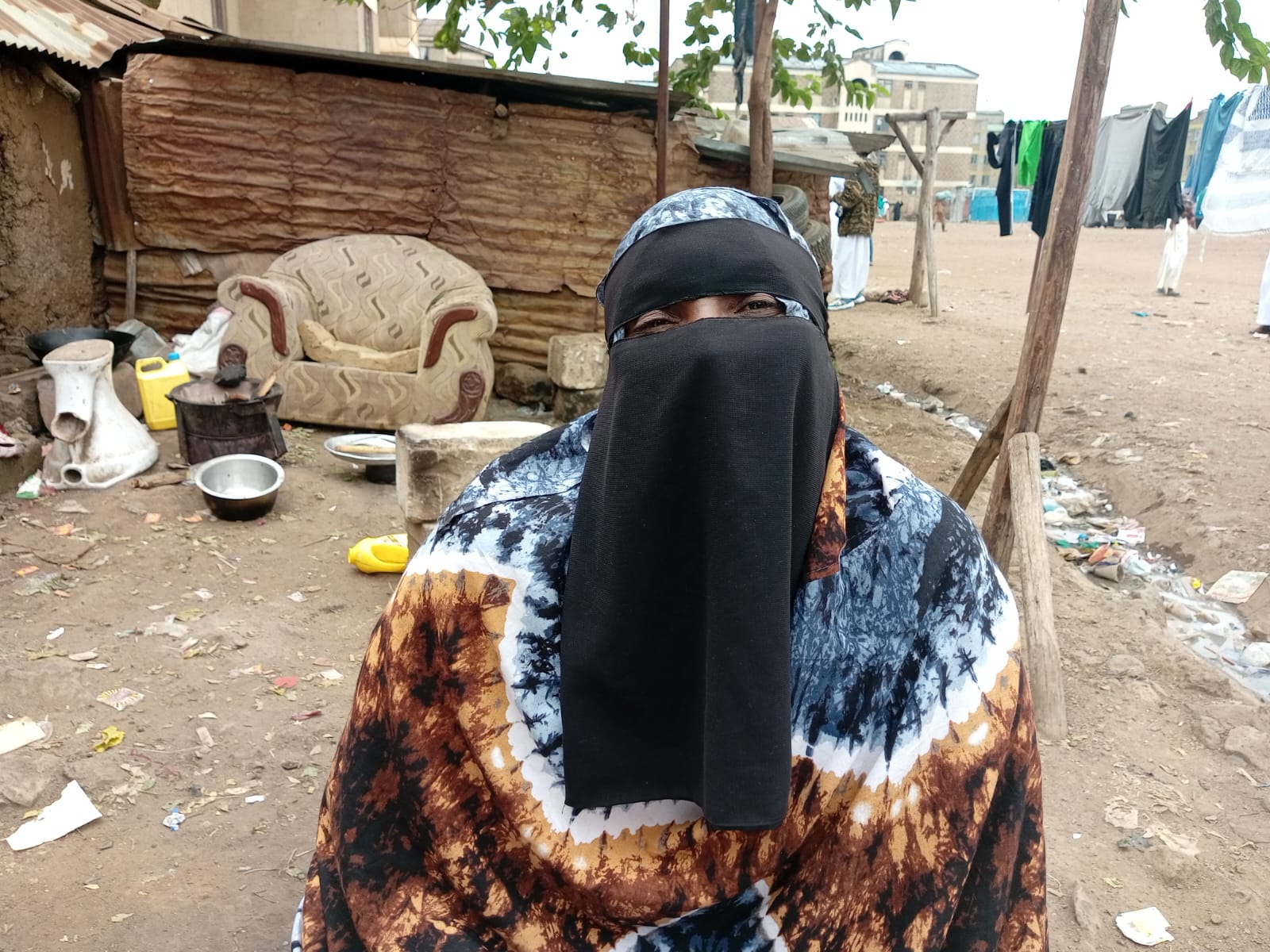 For Marium Abdulla, with rising food prices, rent, and school fees, she found herself unable to set aside enough money for a goat. (Photo: Charity Kilei)
For Marium Abdulla, with rising food prices, rent, and school fees, she found herself unable to set aside enough money for a goat. (Photo: Charity Kilei)
“This year is different,” she admits. “Last year, we managed to buy a small goat. But this time, it wasn’t possible. Still, I am grateful. My friends have invited me and my children to join them. Eid is about community too — not just the slaughter.”
Mwanasiti Mohammed echoes similar sentiments. Though she also couldn’t afford a goat this year, she remains hopeful.
“Fewer people are giving this year. Times are hard for everyone,” she says. “But I’m happy to be alive. Even if we don’t slaughter, we will celebrate with what we have. If a neighbour shares meat, Alhamdulillah. If not, we’ll still pray, dress up, and mark the day with joy.”
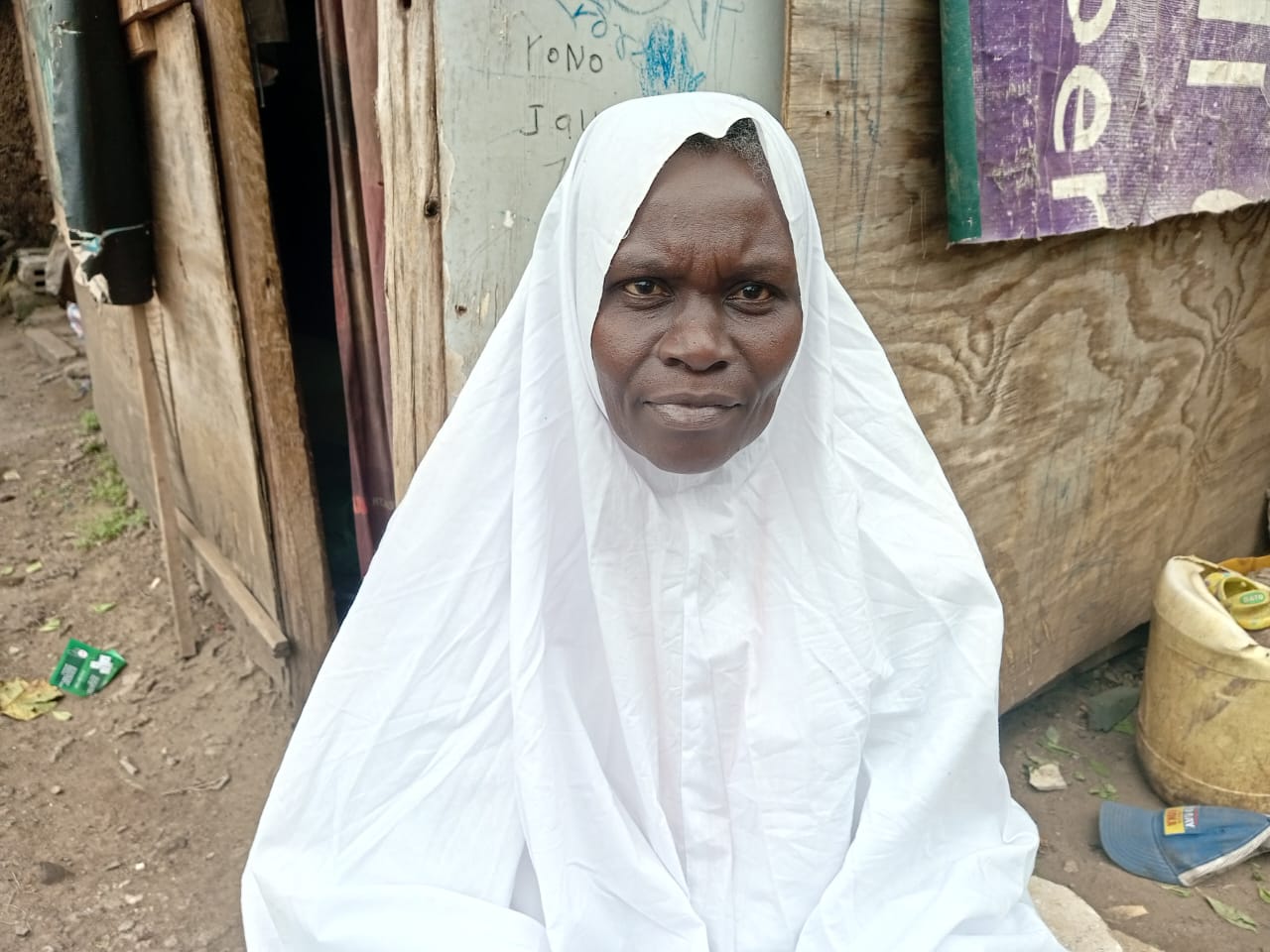 Mwanasiti Mohammed said that though she also couldn’t afford a goat this year, she remains hopeful. (Photo: Charity Kilei)
Mwanasiti Mohammed said that though she also couldn’t afford a goat this year, she remains hopeful. (Photo: Charity Kilei)
Across Eastleigh, the sounds of takbir (Eid prayers), the laughter of children, and the smells of cooking meat blend into a festive harmony. Despite inflation, unemployment, and financial strain, the spirit of Eid remains strong.
Families dress in their best clothes, visit each other, and share meals — even when resources are limited. Local mosques and community organisations have also stepped in, providing meat and food hampers to those in need.
In a world that often feels uncertain, the residents of Eastleigh and its surrounding neighbourhoods are holding tightly to the values that define Eid-ul-Adha — devotion, generosity, and unity.
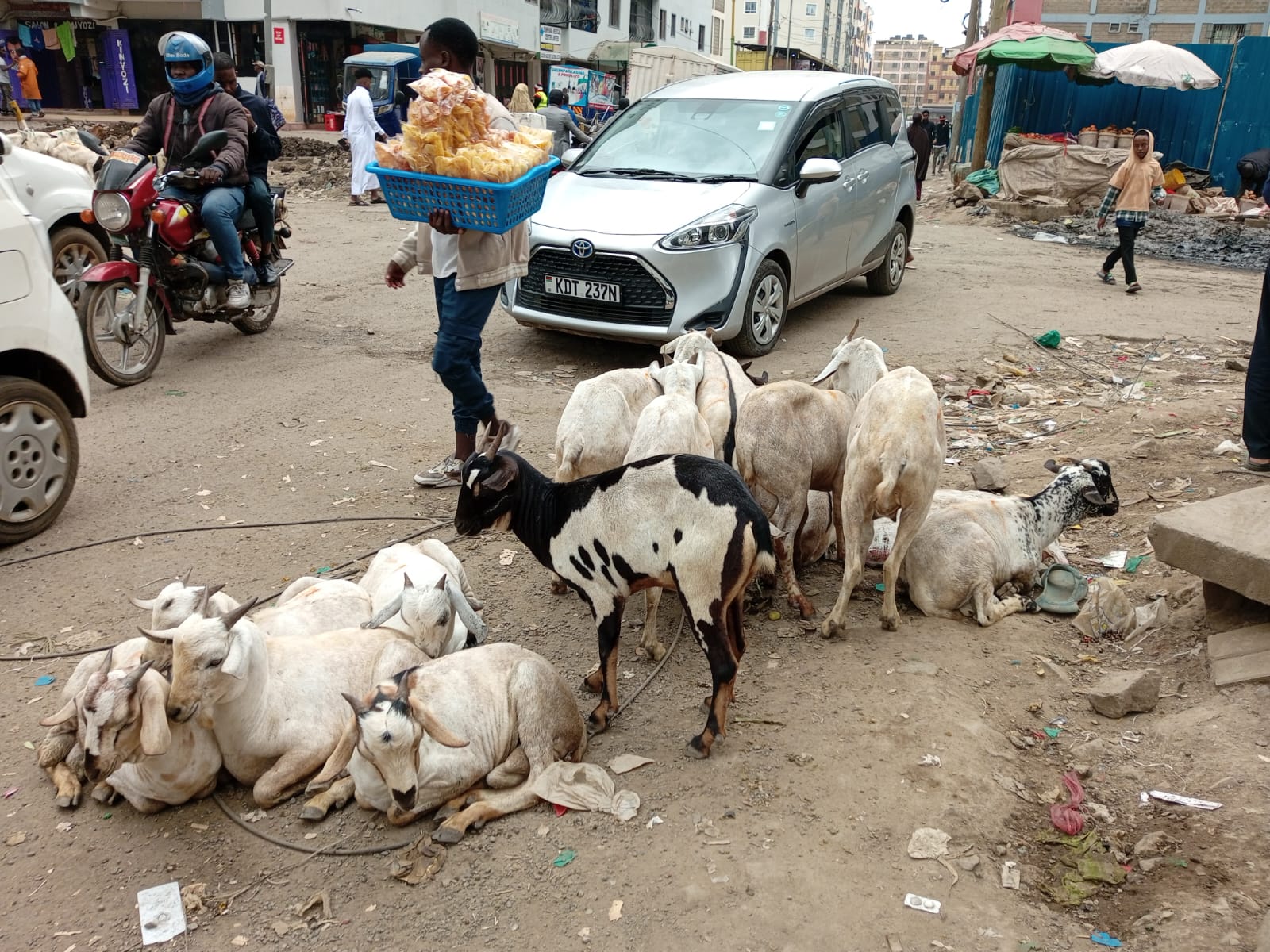 Goats seen on the streets of California, Eastleigh amid Eid-ul-Adha celebrations on June 6, 2025. (Photo: Charity Kilei)
Goats seen on the streets of California, Eastleigh amid Eid-ul-Adha celebrations on June 6, 2025. (Photo: Charity Kilei)
The celebrations are expected to span three days, filled with joy, prayer, and community bonding. During this period, families gather to share meals, exchange visits, and reflect on the values of sacrifice, generosity, and unity that define the holiday. The first day is marked by congregational prayers held early in the morning, followed by the ritual slaughter of animals such as goats, sheep, or cows. The meat is then divided into three portions — one for the family, one for relatives and friends, and one for the less fortunate — reinforcing the spirit of compassion and charity.
Over the next two days, the festivities continue with family feasts, visits to relatives, and the distribution of food and gifts. It is a time when communities, regardless of economic background, come together in gratitude and celebration.
Top Stories Today
